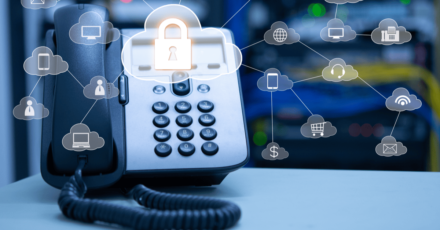
If you’re considering a communications upgrade, no doubt you are seeing a lot of information encouraging you to make the switch to a cloud phone system. While offering many benefits over an on-site solution, every cloud-based solution is different, and there are some considerations you will want to include in your selection process.
You may also hear cloud phone systems referred to as unified communications as a service (UCaaS), which is a type of cloud-based solution that offers all communications formats in an integrated service managed by the cloud provider. Not all cloud communications fall into this category, so if UCaaS is what you decide will meet your needs, be sure it’s what your provider offers. Here are three other areas you’ll want to consider:
Features: It can be dizzying to consider all the features of a UCaaS solution. Not every cloud phone system will be equally complex, and they certainly won’t offer the same features. What is critical is that you not only assess how each feature would be used in your business processes, but you should also question how you’ve done things in the past. You should abandon the mindset of “we’ve always done it this way”, and allow this disruptive technology to help you blaze new trails.
Costs: The reduction in communications expenses is often the first reason that companies consider a cloud phone system. Instead of requiring a major capital investment, your solution will be invoiced monthly as a subscription with the cost based on the number of users you need.
While it will be significantly cheaper, as well as allow you to categorize the payments as operating expenses, there can be many hidden charges with the solution. You may want to ask about number porting fees, implementation and set-up fees, whether there are charges for auto-attendant features, and whether there is an additional charge for 911 emergency compliance.
Ask to see a copy of an actual invoice that they have sent to clients that are similar in size and business type so that you can get an accurate picture of what costs will be.
Reliability: Every cloud phone system will say they have automatic failover, but as you’ve probably noticed in the headlines recently, even the biggest cloud providers experience outages. You need to get clarity around what kinds of circumstances will trigger their failover. For instance, if a cloud provider’s failover protocol is only for a certain number of users affected, it can be frustrating to find out your company isn’t big enough to qualify.
It’s also a good idea to push back on those downtime claims. Ask for references that can tell you downtime numbers from the customer end, and keep in mind the difference between 99% downtime and 99.9999% downtime is several hours versus a few minutes in a year’s time.
When it’s time to consider a cloud phone system, let Cloud Source be your guide. From assessing your needs to helping you navigate the intricacies of a UCaaS service level agreement, we can help you make the transition seamlessly. Contact us today to get started.